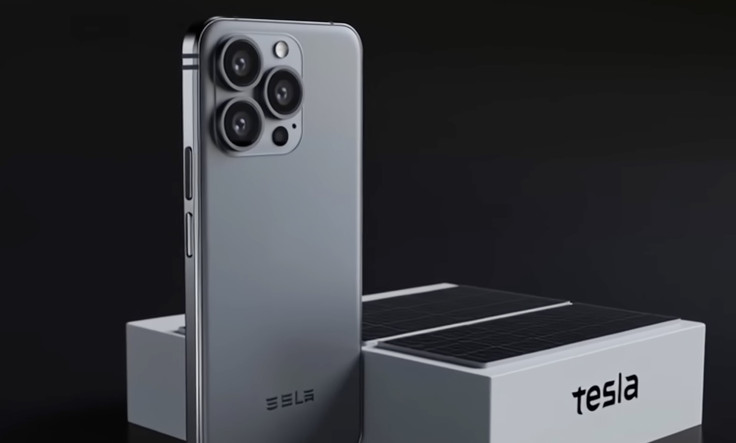Is Tesla Pi Phone Better Than Realme GT8 Pro? All The Things You Should Know
Realme GT8 Pro vs. Tesla Pi Phone: A full spec comparison. See how the powerhouse stacks up against the futuristic myth.
Which is better: Tesla Pi Phone or Realme GT8 Pro? In a market saturated with yearly iterative updates, the battle for smartphone supremacy has become a predictable dance between established titans. But what happens when a proven powerhouse, a 'flagship killer' in its own right, is pitted against a myth?
In one corner, we have the tangible, a device packed with today's most extreme technology. In the other, a whisper, a revolutionary concept backed by one of the most ambitious names in tech. This is the story of the here and now versus the bold and rumoured—a showdown that captures the imagination.

Reality vs. Rumour: The Tale of the Tesla Pi Phone and Realme GT8 Pro
The smartphone landscape is set for a seismic shift with the arrival of the Realme GT8 Pro, a device that pushes the boundaries of current technology, set for a global launch on November 5, 2025, with a starting price of around $1,200. Its specifications, detailed on tech authority sites like GSM Arena, paint a picture of unparalleled performance.
Yet, conversations in tech circles are dominated by a more enigmatic contender: the rumoured Tesla Pi Phone, speculated for a potential late 2026 debut with a price point that could exceed $2,000 due to its unique technologies.
While the Realme GT8 Pro is a feat of engineering you can hold in your hand, the Pi Phone represents a potential paradigm shift, promising an ecosystem that blends satellite communication, neural interfaces, and sustainable energy. This comparison isn't just about specifications; it's about a tangible powerhouse challenging a futuristic legend.
Under the Bonnet: Raw Power in the Tesla Pi Phone and Realme GT8 Pro
At the heart of the Realme GT8 Pro lies the formidable Qualcomm SM8850-AC Snapdragon 8 Elite Gen 5 chipset, an octa-core beast with two 4.6 GHz Oryon V3 Phoenix L cores leading the charge. Paired with a staggering 16GB of RAM and ultra-fast UFS 4.1 storage, this device is engineered for blistering performance, promising a seamless experience whether gaming, editing 8K video, or multitasking.
In contrast, the Tesla Pi Phone is rumoured to feature the 'Tesla D1' chip, a mobile version of the processing architecture used in its Dojo supercomputer. This would be paired with an estimated 12GB of RAM, focusing less on raw multi-core speed and more on unparalleled AI and neural network processing for features like on-device language models and predictive user interfaces.
A Display of Dominance: Screen Technology on the Tela Pi Phone and Realme GT8 Pro
Realme has equipped the GT8 Pro with a jaw-dropping 6.79-inch LTPO AMOLED display. Its 1440 x 3136 pixel resolution provides incredible sharpness (~508 ppi density), while the 144Hz refresh rate ensures fluid motion. What truly sets it apart is the staggering peak brightness of 7000 nits, making it perfectly viewable even in the harshest direct sunlight.
Rumours for the Tesla Pi Phone suggest a focus on durability and unique functionality. Speculation points to a 6.7-inch micro-LED display with a 120Hz refresh rate. While its peak brightness may not challenge the Realme's, its unique selling point is the rumoured 'PowerGlass' technology, which would allow the screen to passively solar charge the device, extending battery life.

The Future of Photography?: Contrasting Cameras on the Tela Pi Phone and Realme GT8 Pro
The Realme GT8 Pro arrives with a camera system that can only be described as phenomenal. The triple-lens setup is headlined by a groundbreaking 200 MP periscope telephoto lens, offering 3x optical zoom and promising unprecedented detail from a distance.
This is supported by a 50 MP wide lens and a 50 MP ultrawide lens, creating a versatile system capable of capturing stunning images in any scenario, further enhanced by Ricoh lens technology and advanced features like 10-bit LOG video.
The Tesla Pi Phone's camera system, while speculative, is said to leverage AI to an extreme degree. The Pi Phone is expected to feature a more modest dual-camera setup, likely with two 48 MP sensors for wide and ultrawide shots.
However, the rumoured advantage comes from its software, leveraging Tesla's renowned computer vision AI to offer real-time computational photography, astrophotography modes linked to Starlink's satellite positioning, and seamless integration with a user's Tesla vehicle cameras.
Unplugged Potential: Battery and Charging Innovations in the Tela Pi Phone and Realme GT8 Pro
Endurance is a key battleground, and the Realme GT8 Pro is a titan. It houses a massive 7000 mAh Li-Ion battery, designed to last well beyond a single day of heavy use. When it does need a top-up, its 120W wired charging is astonishingly fast, capable of going from 15% to 50% in just 15 minutes and reaching a full charge in 43 minutes. It also supports 50W wireless charging.
The Tesla Pi Phone aims to tackle battery life from a different angle. Leaks suggest it will house a substantial 6,500 mAh graphene-based battery. Its most talked-about feature is the potential for integrated solar charging and seamless connectivity to SpaceX's Starlink satellite network. This would provide basic satellite internet service for text and emergencies in areas with no cellular coverage—a feature no other manufacturer currently offers.
Ultimately, the choice between the Realme GT8 Pro and the Tesla Pi Phone is a choice between two different philosophies. Do you invest in the pinnacle of today's proven technology—a device with quantifiable, record-breaking power and features available right now? Or do you hold out for a revolutionary concept that promises to rewrite the rules of connectivity and integration, even if it remains a whisper on the horizon? The Realme GT8 Pro is the king of the present, while the Tesla Pi Phone is a compelling question about the future.
Which path excites you more? Share your thoughts and tell us which device you'd choose in the comments below!
© Copyright IBTimes 2025. All rights reserved.

























